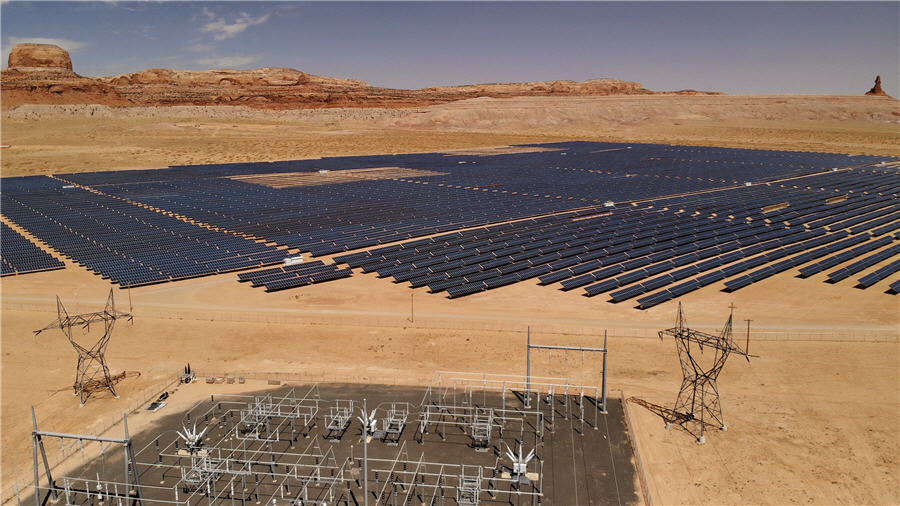Trump likes fossil fuels but investors don’t

Fossil fuel never had a better friend in the White House than Donald Trump. So why, two years into his presidency, are investors favoring public companies devoted to renewable energy and giving the Bronx cheer to the coal, gas and oil crowd?
Trump campaigned against the scientific consensus on climate change and promised to repeal any regulation that impeded the exploration, drilling, mining and burning of traditional energy. Since his inauguration on Jan. 24, 2017, he rescinded the Environmental Protection Agency’s Clean Power Plan, the Interior Department’s moratorium on new coal mining on public land, and President Barack Obama’s 2013 climate action plan and 2015 climate mitigation efforts. He withdrew from the Paris agreement signed by 195 countries in 2015, revived construction of the Keystone XL pipeline connecting Canada’s oil sands to Gulf Coast refineries, and increased by 600 percent the public land (not to mention coastal waters) for lease by oil and gas companies.

Yet with all of these incentives, fossil fuel is a rare loser in the stock market since Trump took office. And that’s after oil appreciated 15%. The 170 companies in the Russell 3000 Energy Index, most of which engage in oil and gas, are down 12% during the first administration to declare global warming a hoax. The Russell 3000, meanwhile, gained 27% and technology, its best-performing sector, rallied 53%, according to data compiled by Bloomberg.
Solar energy
As lucrative as the overall stock market has been for investors during the past two years, clean-technology shares have done even better. The 89 major publicly traded U.S. firms identified by Bloomberg New Energy Finance as deriving at least 10 percent of their revenue from the business of renewable energy, energy efficiency or clean technology have returned 50% since Trump’s first day in the Oval Office.
Better batteries
Free-market capitalists seek profits wherever they see the potential for exceptional growth, and they’re reaping a bonanza from the cleanest companies. Ameresco Inc., a firm based in Framingham, Massachusetts that develops renewable-energy projects, almost doubled its value to $15 a share during the Trump presidency. Vivint Solar Inc., a Lehi, Utah-based installer of renewable-energy equipment, appreciated 98%. Cree Inc., the Durham, North Carolina producer of energy-efficient environmental lighting, surged 121%, according to data compiled by Bloomberg.
What did traditional energy companies do for their shareholders during the same period with Trump as the cheerleader-in-chief? Irving, Texas-based Exxon Mobil Corp. gained 1%. Kinder Morgan Inc., the pipeline transportation and energy storage company based in Houston, lost 1%. Peabody Energy Corp., based in St. Louis, declined 4% since it was restructured in April 2017, according to data compiled by Bloomberg.
Trump’s energy plan proposes to utilize “vast untapped domestic energy reserves right here in America.”
Wind power
But it “ignores the greatest untapped and most job-productive American energy resources: sun power, wind power, and energy efficiency,” according to the Labor Network for Sustainability, which cites Department of Energy statistics showing “more workers directly employed by the clean energy industry than by the fossil fuel industry.”
The Labor Network noted that “both the solar and wind industries are creating jobs 12 times faster than the rest of the economy,” and added that “the number of U.S. jobs in solar energy now exceeds those in oil and natural gas extraction.”

Investors are making their bets accordingly. The iShares Global Clean Energy ETF, the largest exchange-traded fund in the U.S. investing in clean energy, has seen its shares outstanding, a proxy of net inflows of capital, increase 152% since Trump became president. By contrast, Energy Select Sector SPDR Fund, the largest exchange-traded fund in the U.S. investing in companies in the oil and gas business, saw its shares outstanding decline 20% during the same period, according to data compiled by Bloomberg.
Coal power
More than any president in modern times, Trump has championed coal, which remains an also-ran with investors. Since January 2017, the seven coal-engaged firms in the Russell 3000 Coal Index depreciated more than 6%.
He should be looking to the sun, where more money is made. Invesco Solar, the largest exchange-traded fund investing in the solar energy business, returned 43% since he became president.
(By Matthew A. Winkler)
More News
{{ commodity.name }}
{{ post.title }}
{{ post.date }}




Comments